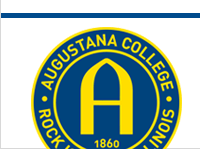Embracing écriture inclusive Students Respond to Gender Inclusivity in the French Language Classroom
Course
Honors Capstone
Document Type
Student Paper
Publication Date
5-2020
Disciplines
Curriculum and Instruction | Educational Methods | French and Francophone Language and Literature | Language and Literacy Education | Lesbian, Gay, Bisexual, and Transgender Studies | Other Feminist, Gender, and Sexuality Studies
Description, Abstract, or Artist's Statement
In 2017, the French Academy published a declaration opposing the official integration of écriture inclusive into the French language for fear that it would put it in “péril mortel.” Specifically, the Academy targeted a newly proposed punctuation, le point milieu, or the middot, that would allow those writing in French to express both the masculine and feminine endings of words with a dot between the two. This addition would disrupt traditional gendered interpretations within the language and make space, not only for the goals of French feminists, but also for visibility of non-binary French-speaking people. The Academy argued, however, that this addition would negatively impact language learning. This paper addresses this specific concern of the French Academy through the responses of French language students who actively learned écriture inclusive as part of their curriculum. These responses were collected during a fourteen-week period of participant observation in a French-101 classroom at Augustana College, a small, liberal arts school in Rock Island, Illinois. During this time, seven interviews about their language-learning experiences were conducted with students from the class—all of whom had little to no prior knowledge of the French language. Based on this fieldwork and theoretical perspectives surrounding gender and language learning, I argue that écriture inclusive has a clear place within French language pedagogy and that learning écriture inclusive did not inhibit learning of the French language within this classroom. Rather, I assert that the incorporation of this pedagogical element enhanced the classroom environment by making space for open discussions surrounding gender and encouraging students to share their identities.
Augustana Digital Commons Citation
Garbe, Rebecca Lynn. "Embracing écriture inclusive Students Respond to Gender Inclusivity in the French Language Classroom" (2020). Honors Program: Student Scholarship & Creative Works.
https://digitalcommons.augustana.edu/honrstudent/11
Included in
Curriculum and Instruction Commons, Educational Methods Commons, French and Francophone Language and Literature Commons, Language and Literacy Education Commons, Lesbian, Gay, Bisexual, and Transgender Studies Commons, Other Feminist, Gender, and Sexuality Studies Commons
